October 2022 HCH Newsletter
The Connection

In this newsletter:
- Director's Message
- Resilience Is A Team Sport
- Walk with a Doc
- HCH Rule Amendment
- HCH Online Portal
- Learning Update
- Do you have a Health Equity Story?
- Noteworthy
Director's Message
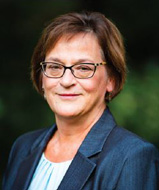 Greetings,
Greetings,
The MDH Health Care Homes (HCH) team is excited to inform you the HCH rule amendment has been approved! This step represents a major milestone for the program, expanding our recognition of the amazing work being done by primary care providers. The new advanced certification levels created by the rule expand the program’s emphasis on strengthening population health, addressing social determinants, and enhancing health equity.
The HCH program could not have accomplished the rule amendment without tremendous support from our partners. Thank you to the Rule Advisory Committee, the Health Care Homes Advisory Committee and workgroups, and the many HCH clinic and community partners whose input has been invaluable.
For more information on the rule and the newly updated and streamlined HCH certification and recertification process, please visit the website at the Health Care Homes homepage or contact the HCH program at Health.HealthCareHomes@state.mn.us.
~ Bonnie
Resilience Is A Team Sport
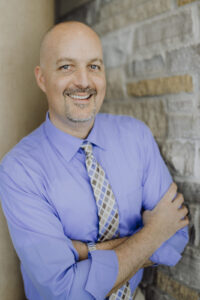
Is the curve flat yet?! Let’s face it, we humans are designed for sprints, not marathons. We likely would have made it through a 2-week sprint relatively unscathed. However, we’ve found ourselves in what seems like a never-ending marathon of increased workload, staff shortages, changing guidelines, and sicker than average patients. At a minimum this has left us feeling exhausted regularly. At times we may feel a little cynical about healthcare and the work we do. We might even ask ourselves if this is the best career path to stay on because it is hard to find fulfillment in our work like we once did. The numbers indicate that many have chosen to pursue other options. Maybe a different career. Maybe early retirement. Anything but the relentless demands, uncertainty, and lack of control when working in healthcare during a pandemic. All this is a recipe for burnout. Frankly, it is a testament to the resilience of all those involved that the system hasn’t collapsed.
Resilience is defined by Dr. Ann Masten in her wonderful book Ordinary Magic (Masten, 2015) as “the capacity of a dynamic system to adapt successfully to disturbances that threaten system function, viability, or development.” The threats of the past two and a half years might be obvious. However, feelings of burnout within healthcare predate the pandemic and were on the rise well before any of us had heard of COVID-19. The pandemic sped up a process that was well underway.
Historically, a lot of the work on burnout and resilience focused on the individual. What can we as individuals do to increase our resilience? Certainly, there are things each of us can do to improve our immunity to burnout, thus enhancing our well-being and our work performance. For example, research has shown that individuals confronted with serious and life-threatening situations fare better emotionally if they rely on positive social support, exhibit optimism and positive affect, maintain a positive view of self, focus on a sense mastery, and foster mindfulness [Manigault, et al, Psychological Science 2022, 33(8) 1328-1339]. Also, it is well known that intentional efforts at stress management, exercise, healthy nutrition, and adequate sleep are vital for us all.
However, only focusing on what each of us as individuals working in healthcare can do for ourselves has led to resilience becoming a 4-letter word of sorts. We take offense to such a singular focus because it feels that we are being blamed for our discomfort. Such an individual focus misses significant opportunities that the systems in which we work can take to create and foster a culture of wellness by promoting appreciation, fairness, safety, and shared responsibility. For example, some healthcare organizations are hiring Wellness Officers. Others are forming interdisciplinary work groups such as Resilience Committees. Such officers and work groups study burnout in their systems and work to implement strategies and create opportunities that reduce burnout by promoting engagement and wellness throughout their systems.
It has become impossible for a family practice physician to independently complete all required tasks within a typical workday. To meet the expectations, there must be teamwork. Similarly, I believe it is impossible to be fully resilient and to thrive on our own. We must work as teams supporting each other with respect, kindness, and professionalism. We must listen to each other and learn from others’ perspectives remembering that no one of us is as smart or capable as all of us. We must work to ensure equity and share responsibility for our patients, our outcomes, and our collective well-being.
It has been said that to go fast, go alone and to go far, go together. Teamwork is required to ensure we make it through this marathon and the challenges that lie ahead in healthcare. So, to individuals: Be intentional about making your well-being a priority, so you can continue to support and care for others while engaging with your teams. To organizations: Make it an active and ongoing priority to create and sustain meaningful opportunities for appreciation, engagement, and wellness throughout your organizations.
Let’s go far, together. I don’t want to think of the alternative.
The HCH program thanks Paul A. Davis, PhD, LP, Licensed Psychologist, Lakewood Health System, for his work on this article and for sharing his expertise.
Walk with a Doc
Walk with a Doc (WWAD) started in 2005 by a cardiologist in Columbus, Ohio, when he invited patients to go for a walk with him in a local park. He was hoping to engage patients around lifestyle changes in a way that wasn’t happening in the clinical setting. It was a success and the rest, as they say, is history. Today Walk with a Doc includes over 500 chapters across the world, including three Minnesota HCHs: Cuyuna Regional Medical Center, Hennepin Healthcare, and Lakewood Health System.
WWAD is much more than a walk. It intentionally consists of four components: 1) exercise, 2) health education, 3) social connection, and 4) nature. Each event is kicked off with a brief discussion or presentation on a current health topic that is led by the hosting doctor (or other healthcare professional). Participants then spend the rest of the time enjoying a walk and conversation.
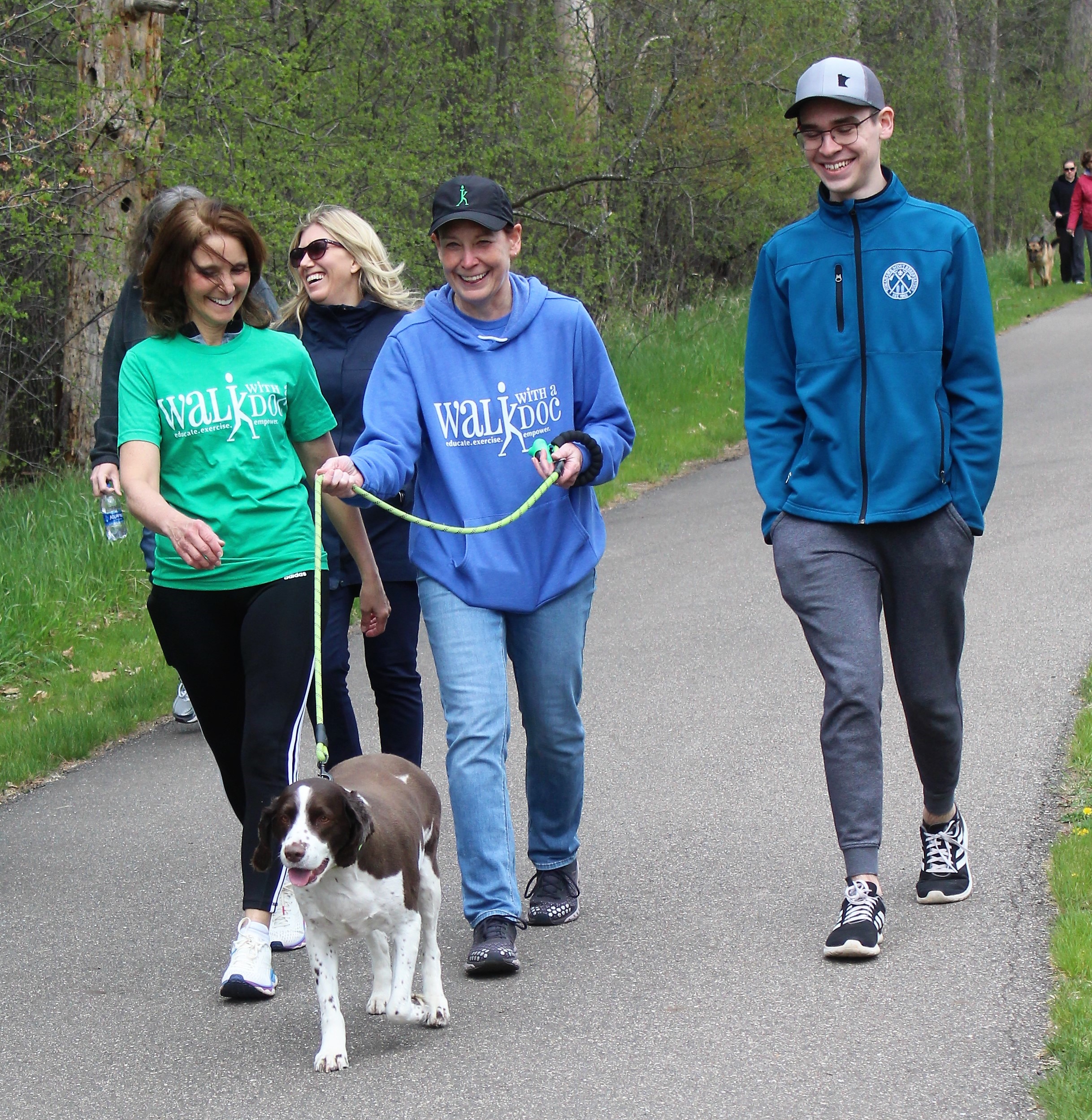
Cuyuna Regional Medical Center
started WWAD in May 2021 and uses the trails of the Cuyuna Country State Recreation Area or the Hallett Community Center as an alternative space during inclement weather. Dr. Wendi Johnson leads the group (faithfully joined by her dog, Stanley) each week for a two-mile journey. Besides the obvious benefit of physical activity, being immersed in the beauty of nature and having an opportunity to build community connections add to the program’s benefits as reflected in one participant’s statement, “Having the walk and the Rec area is a blessing for our community!”

Hennepin Healthcare
started WWAD in November 2021 and uses the Minneapolis Sculpture Garden for their walking space and the Minneapolis Institute of Art as an indoor space when that is needed. Catherine Justice, DPT, leads the program at Hennepin Healthcare and coordinates rotating “docs” to host the walks and wellness presentations. “The overarching theme of our program is the intersections of the healing powers of art, community, and movement. We’ve found some wonderful pieces of art along the way and many hidden gems. Noticing the calming effects of the combination of moving our bodies, experiencing the artwork, and being supported by community has been truly remarkable.”
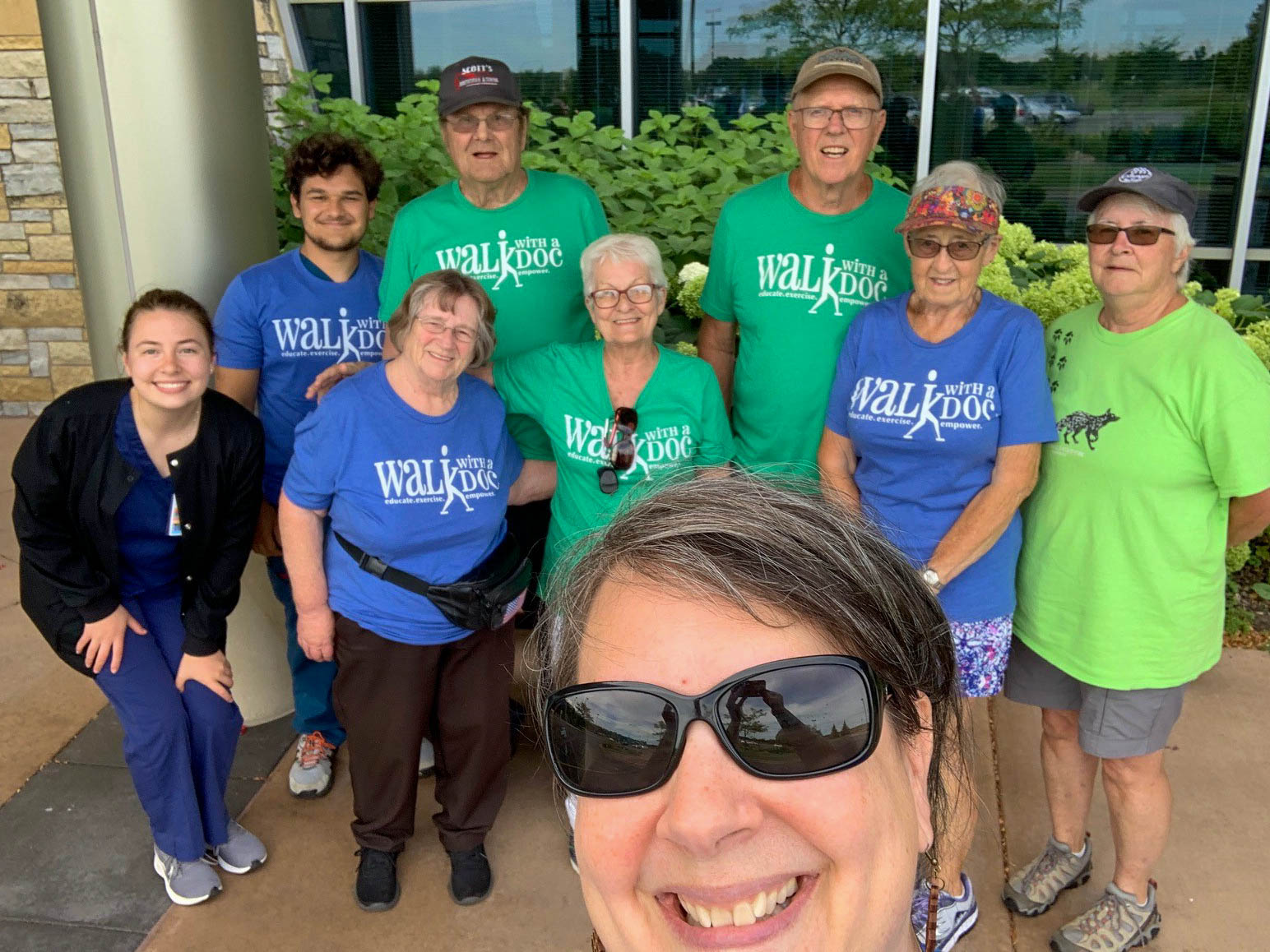
Lakewood Health System
Lakewood Health System began their Walk with a Doc program earlier this year and uses the walking paths around their beautiful Lakewood Main Campus in Staples, MN. Dr. Adrianne Moen is the lead physician for their program, of which there has been much positive feedback about. Participants have enjoyed getting to know their doctors better and share time outside of the clinical setting, as well as getting together with others in their community. “This opportunity to get to know members of our community in a different way is so fun. It is inspiring as well. The walkers have taught me so much. I love hearing their questions and their ideas.”
If you are interested in starting a program in your clinic or community, WWAD provides Start a Walk - With a Doc resources and tools to help get you started. Please note there is a small fee to receive these tools, but that funding and scholarship options are available if cost is a barrier. Happy Walking!
The HCH program thanks Cuyuna Regional Medical Center, Hennepin Healthcare, and Lakewood Health System for sharing their experiences and insight.
HCH Rule Amendment
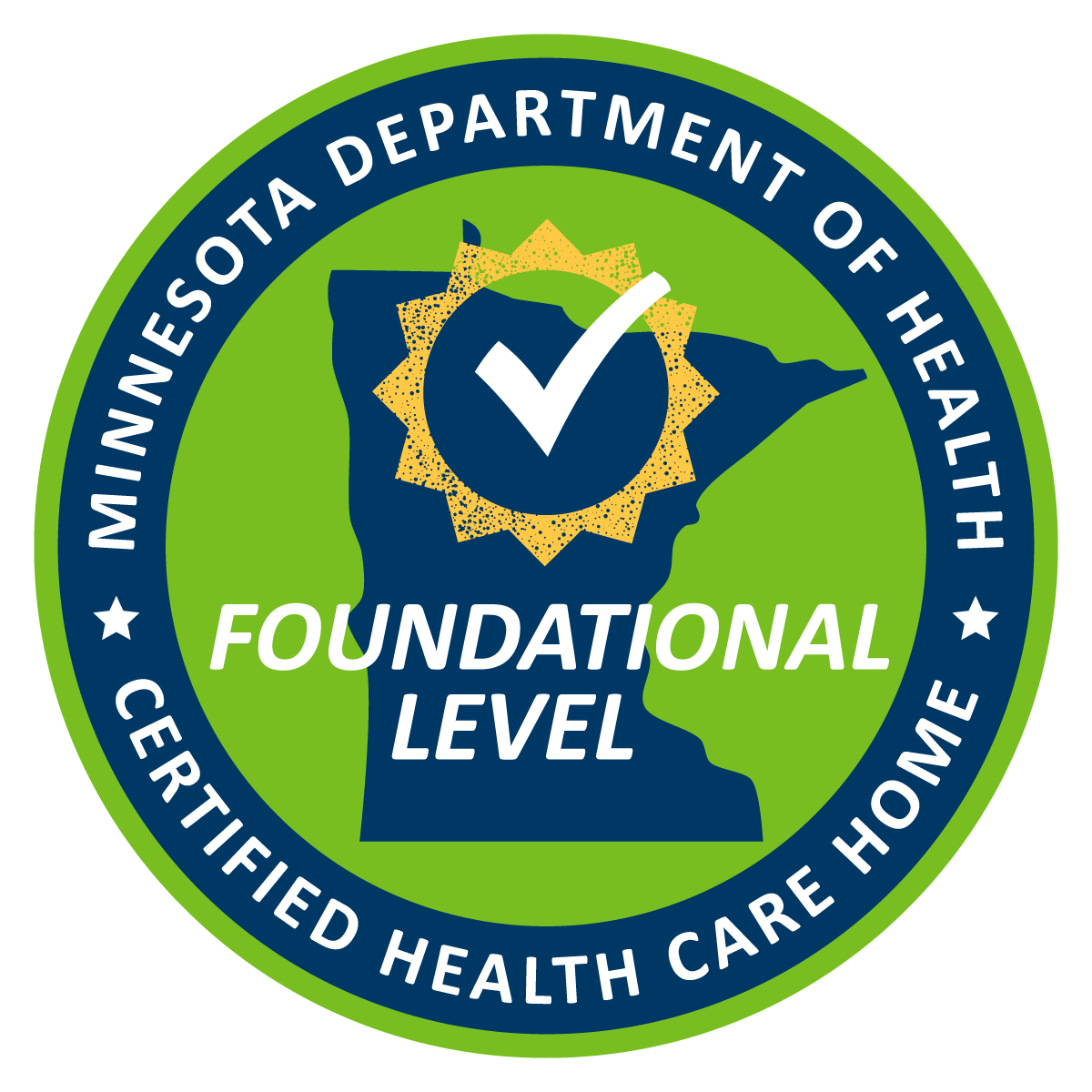
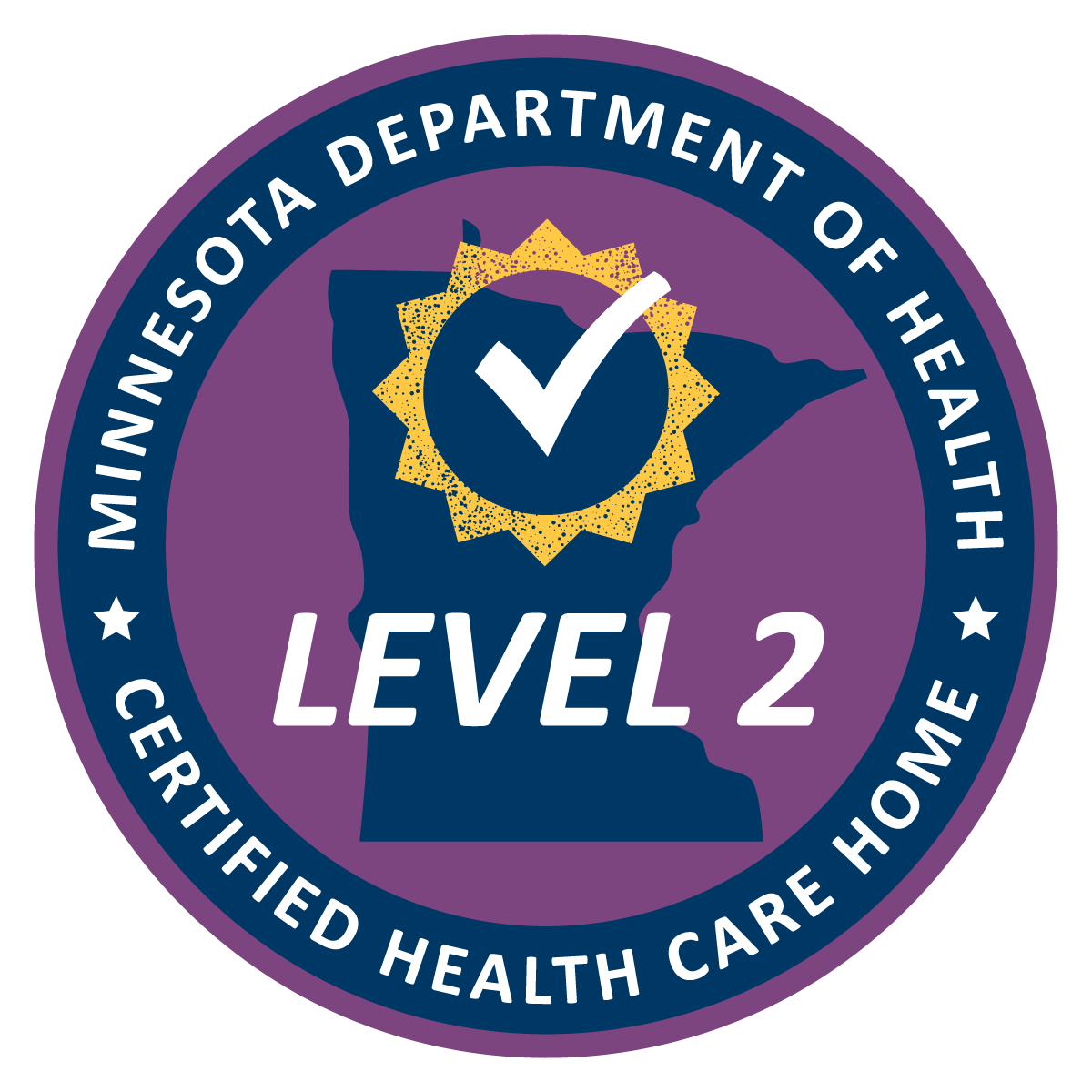
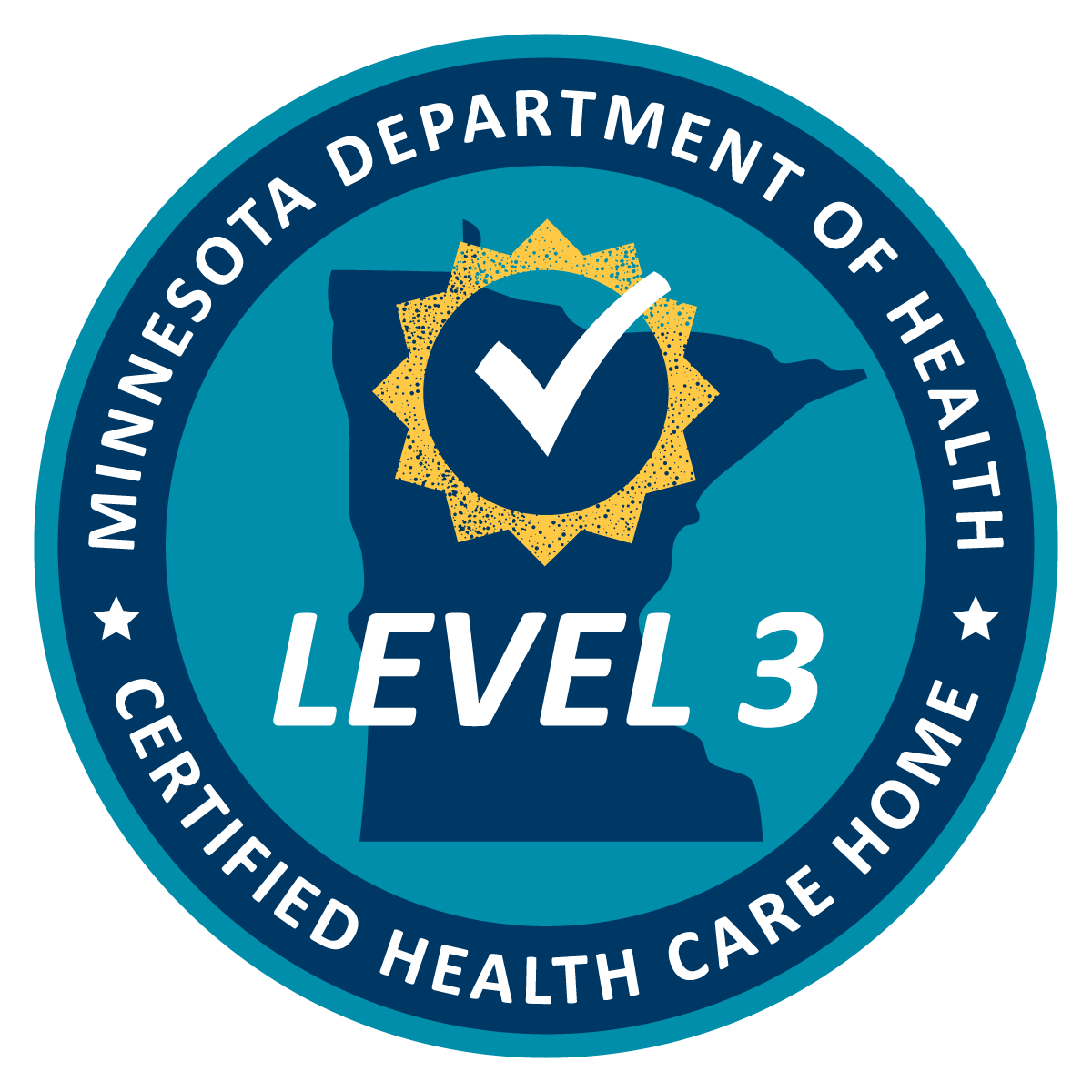
The MDH Health Care Homes (HCH) program is pleased to announce that the HCH rule amendment has been approved. HCH program partners helped to shape and develop the HCH rule amendment.
The most significant change in the HCH rule amendment is the addition of Level 2 and Level 3 certification levels, recognizing clinics that are advancing their primary care models to reduce disparities, improve health equity, address social risks, provide whole person care, and address population health.
The current HCH certification is referred to as the foundational level and will remain mostly unchanged with a few updates made to clarify intent and language, such as clarification that the health care home population is the entire clinic population, not just patients who receive or are enrolled in care coordination. Emphasizing all patients, the entire clinic population, receive some level of coordinated care in a HCH. The most significant updates were made in the care plan requirements allowing for increased flexibility in the care plan elements and implementation of care planning strategies.
Level 2 certification recognizes clinics that identify social risk factors and use that information to manage care, offer enhanced options for patients to access care, use integrated care teams to meet patient and family needs, monitor health disparities within the patient population, addresses health equity in quality improvement efforts, and are working to improve information sharing processes with community partners.
Level 3 certification recognize clinics that contribute to and have shared responsibility in community population health efforts.
Certification features:
- Certification remains voluntary and free
- Clinics enter at level appropriate for them
- No requirement to advance levels
- Clinics can choose to change levels within the 3-year recertification period
- Strengthen clinic-community linkages, population health, and health equity
- Assist clinics in preparing for value-based care
- Support health information exchange (HIE) to improve data sharing and alignment with state goals
- Align with existing and emerging models of care delivery
HCH Online Portal
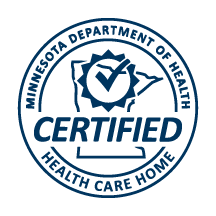
With the final step of the HCH program rule amendment complete, organizations across Minnesota can now apply for certification, recertification or level progression using the streamlined application process in the new online certification portal.
The following resources are available to help guide you on using the new online certification portal to complete the HCH application for each certification/recertification level.
- COMPASS (PDF) (Certification/recertification Operations Manual Providing Application Submission Support) - This tool explains the program, standards and requirements for certification and recertification. It contains definitions, explanation of the new level progression, examples of actions that meet each requirement, and more.
- HCH Portal User Guide (PDF) - This resource is a step-by-step guide to navigating the new portal and completing the application online.
You are invited to review the resources and begin exploring the new process. Please reach out to your Practice Improvement Specialist or Integration Specialist with any questions or to request a demonstration.
We look forward to working with you!
Learning Update
![]()
New Rule, New Tools
- Webinar: Join us on October 19 at Noon for a webinar where members of the HCH team will explain and demonstrate aspects of the new progression model and resources to support it. Watch for more information in the LEARN bulletin.
- E-Learning: The Foundations of HCH e-learning course is being updated to incorporate new information regarding the progression model and advanced certification requirements. Available soon.
Peer-to-Peer Networking Pilot Continues
Interest remains strong in HCH’s stakeholder-driven, peer-to-peer networking pilot. Thanks to Christine Wiles and her team at CentraCare for hosting a lively discussion on care coordination on September 27. Mark your calendars for November 17 at noon when Jennifer Jerde and her colleagues from Ridgeview Medical will lead a discussion on population health. Watch for more information in the LEARN bulletin.
2023 Learning Forecast
The 2023 learning plan is beginning to take shape as we look at past data and invite feedback from our stakeholders. While we’re not ready to share just yet, we can promise that we will respect that clinic life remains challenging with greater, more complex needs and fewer resources. While clinic staff are hungry for face-to-face learning and networking, capacity is limited – so we will continue to focus on virtual learning and gradually reintroduce face-to-face opportunities. Stay tuned for more information!
Do you have a Health Equity Story?

Certified Health Care Homes -
Do you have a Health Equity Story that you would like highlighted in the HCH newsletter?
Download the Health Equity Story Form (PDF) and follow instructions for submission.
Noteworthy

- The Safe Harbor program recently created a new online course, Serving Survivors of Human Trafficking in Health Care Settings, which teaches heath care professionals how to identify survivors of human trafficking and provide trauma-responsive care. The training is ideal for health care professionals working in many settings, including emergency room departments, community clinics, and other health care settings. For more information, please visit the Safe Harbor website.
- The American Heart Association and Public Health Americorps have joined forces to create HeartCorps, an initiative to strengthen heart health in rural areas. Two HeartCorps members will be placed with Minnesota organizations this Fall and host sites are being sought. Learn more at https://www.heart.org/HeartCorps or email HeartCorps@heart.org
- Attend the 2022 MN HIMSS and Minnesota e-Health Initiative Virtual Series! Occurring at noon on four consecutive Wednesdays beginning October 26 and ending November 16, each 90-minute session in the series is free to attend and will highlight relevant topics intended to advance e-health thinking in Minnesota and beyond. This year’s theme is Using Health Information for Community Impact: Where Have We Been, and What is the Next Normal?
Visit the Stratis Health event page for more information. - This year, National Rural Health Day is Thursday, November 17. Visit the MDH Office of Rural Health and Primary Care website for more information about “Celebrating the Power of Rural”.
- The American Lung Association has released two new general public education videos:
- "How Indoor Air Quality Impacts Your Lungs". This 3-minute video provides an overview of how indoor air pollutants enter your body, impact your lungs and practical steps to improve indoor air quality.
- "How Lungs Work". This 3-minute video simplifies how the lungs work and is a great starting point for use with the general public and with patients in school and clinic settings.
- The three-digit number “988” will route people to the 988 Suicide and Crisis Lifeline. Other mental health resources:
Return to HCH Newsletter Main Page